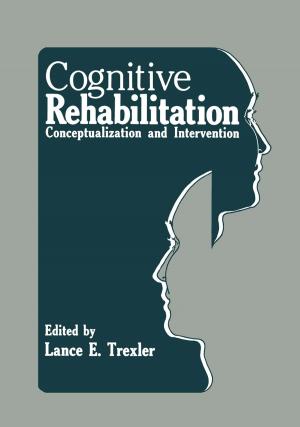Computer-Based Diagnostics and Systematic Analysis of Knowledge
Nonfiction, Reference & Language, Education & Teaching, Teaching, Computers & Technology, Family & Relationships| Author: | ISBN: | 9781441956620 | |
| Publisher: | Springer US | Publication: | January 29, 2010 |
| Imprint: | Springer | Language: | English |
| Author: | |
| ISBN: | 9781441956620 |
| Publisher: | Springer US |
| Publication: | January 29, 2010 |
| Imprint: | Springer |
| Language: | English |
What is knowledge? How can it be successfully assessed? How can we best use the results? As questions such as these continue to be discussed and the learning sciences continue to deal with expanding amounts of data, the challenge of applying theory to diagnostic methods takes on more complexity.
Computer-Based Diagnostics and Systematic Analysis of Knowledge meets this challenge head-on as an international panel of experts reviews current and emerging assessment methodologies in the psychological and educational arenas. Emphasizing utility, effectiveness, and ease of interpretation, contributors critically discuss practical innovations and intriguing possibilities (including mental representations, automated knowledge visualization, modeling, and computer-based feedback) across fields ranging from mathematics education to medicine. These contents themselves model the steps of systematic inquiry, from theoretical construct to real-world application:
- Historical and theoretical foundations for the investigation of knowledge
- Current opportunities for understanding knowledge empirically
- Strategies for the aggregation and classification of knowledge
- Tools and methods for comparison and empirical testing
- Data interfaces between knowledge assessment tools
- Guidance in applying research results to particular fields
Researchers and professionals in education psychology, instructional technology, computer science, and linguistics will find Computer-Based Diagnostics and Systematic Analysis of Knowledge a stimulating guide to a complex present and a rapidly evolving future.
What is knowledge? How can it be successfully assessed? How can we best use the results? As questions such as these continue to be discussed and the learning sciences continue to deal with expanding amounts of data, the challenge of applying theory to diagnostic methods takes on more complexity.
Computer-Based Diagnostics and Systematic Analysis of Knowledge meets this challenge head-on as an international panel of experts reviews current and emerging assessment methodologies in the psychological and educational arenas. Emphasizing utility, effectiveness, and ease of interpretation, contributors critically discuss practical innovations and intriguing possibilities (including mental representations, automated knowledge visualization, modeling, and computer-based feedback) across fields ranging from mathematics education to medicine. These contents themselves model the steps of systematic inquiry, from theoretical construct to real-world application:
- Historical and theoretical foundations for the investigation of knowledge
- Current opportunities for understanding knowledge empirically
- Strategies for the aggregation and classification of knowledge
- Tools and methods for comparison and empirical testing
- Data interfaces between knowledge assessment tools
- Guidance in applying research results to particular fields
Researchers and professionals in education psychology, instructional technology, computer science, and linguistics will find Computer-Based Diagnostics and Systematic Analysis of Knowledge a stimulating guide to a complex present and a rapidly evolving future.















